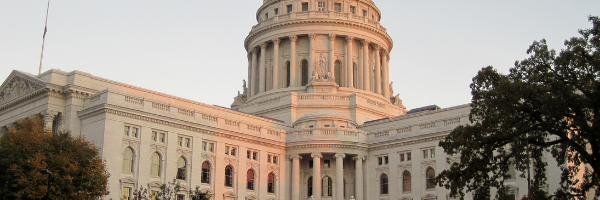Tag: Janus
-
Ballotpedia’s Union Station: Third Circuit rejects challenge to class action suit over union fees
Posted on

Third Circuit rejects challenge to class action suit over union fees On Jan. 15, 2021, a three-judge panel of the U.S. Court of Appeals for the Third Circuit upheld the U.S. District Court for the Middle District of Pennsylvania’s decision in Bethany LaSpina v. SEIU Pennsylvania State Council et al. The lower court had dismissed…
-
Union Station: Federal court rejects challenge to Wisconsin union regulations
Posted on

Seventh Circuit rejects challenge to Wisc. Act 10 On Dec. 17, 2020, a three-judge panel of the U.S. Court of Appeals for the Seventh Circuit rejected a challenge to Wisconsin Act 10, omnibus legislation enacted in 2011 that introduced new requirements and regulations for public-sector labor unions. The parties to the suit The plaintiffs are…
-
First Circuit: New Hampshire workers not entitled to refunds for previously paid union fees
Posted on

First Circuit: New Hampshire workers not entitled to refunds for previously paid union fees On Nov. 30, a three-judge panel of the U.S. Court of Appeals for the First Circuit ruled that public-sector unions are not liable for refunding fees paid by non-members before Janus v. AFSCME. Parties to the lawsuit The plaintiffs are…

